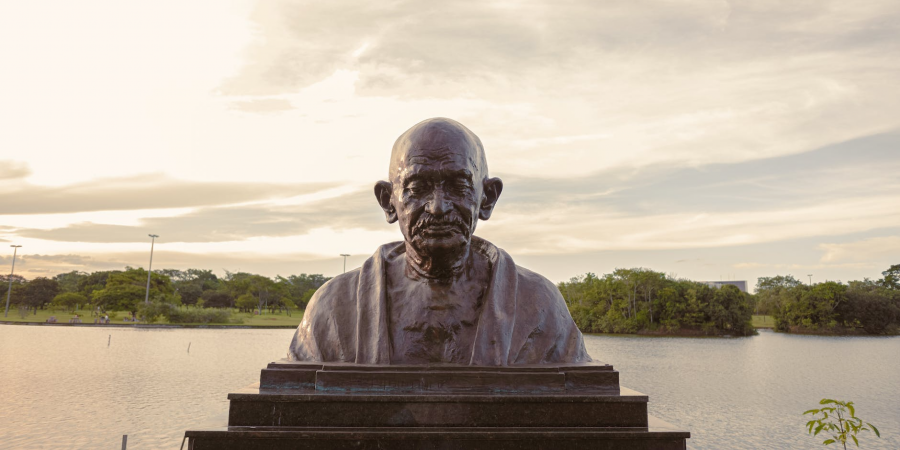

INTRODUCTION
Mahatma Gandhi, an Indian lawyer, politician, social activist, and writer, was born in Porbandar, India, on October 2, 1869, and passed away in Delhi on January 30, 1948. He rose to prominence as the head of the nationalist movement opposing British rule in India. He became known as his nation's father as a result. Gandhi's philosophy of using nonviolent protest (satyagraha) to advance social and political change has earned him recognition on a global scale.
Gandhi was regarded by millions of his fellow Indians as the Mahatma, or "Great Soul." His tours were a terrible hardship because of the unquestioning devotion of the enormous crowds that flocked to see him along the way; he could hardly work during the day or sleep at night. "Only the Mahatmas are aware of the woes of the Mahatmas," he wrote. During his lifetime, his notoriety grew globally, and it continued to grow after his passing. These days, Mahatma Gandhi's name is among the most widely known worldwide.
youth
Gandhi was the youngest kid born to the fourth marriage of his father. Under British suzerainty, his father, Karamchand Gandhi, served as the dewan (chief minister) of Porbandar, the capital of a tiny principality in western India (in what is now the state of Gujarat). Gandhi had no formal schooling. But he was also a skillful administrator, able to find his way between the stubborn British political officers at the top and the erratic princes and their long-suffering peasants.
Putlibai, the mother of Gandhi, was totally devoted to her faith, had little taste for finery or jewelry, lived a fasting lifestyle, spent many days and nights caring for her family when someone was ill, and fasted regularly. Mohandas was raised in a household that was deeply rooted in Jainism, a morally strict Indian religion whose central ideas are nonviolence and the notion that everything in the cosmos is everlasting, along with a significant emphasis on Vaishnavism, the worship of the Hindu god Vishnu. As a result, he disregarded concepts like vegetarianism, fasting for self-purification, ahimsa (the non-injury of all living things), and tolerance between followers of different faiths and sects.
The primary school that Mohandas attended had primitive educational facilities; the students wrote the alphabet with their fingers in the dust. Fortunately for him, another princely state, Rajkot, appointed his father as its dewan. Mohandas had a generally average record, despite the fact that he periodically won awards and scholarships from the local schools.
